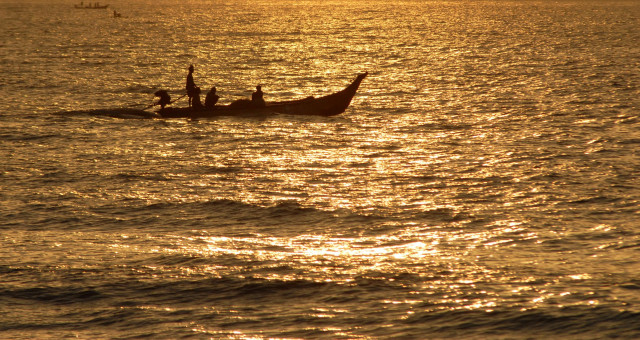Tando Allahyar tragedy: Eight die as boat capsizes in artificial lake
Four children and three women are among the deceased.

Two survivors of the tragedy, Motia Mallah and Shahnaz Mallah, said the boat capsized due to strong winds. PHOTO: EPA/FILE
At least eight members of a family drowned on Thursday when a boat carrying 10 fisherfolk capsized in an artificial lake in Tando Allahyar, said rescue workers.
Three women and four children were among the victims. A male member of the same family was also drowned. It took the divers over four hours to pull out the bodies.
The passenger had set off from Juman Walidinno Goth and their boat was heading to Yusuf Mallah Goth.
The artificial lake in which the tragedy occurred was formed after the heavy rains of 2011. Its waters cover an area spread over 15 kilometres of Ailchi Bello near Usman Shah Hatiri. Villagers often use boats to cross the lake. The latest downpours had caused the lake water to swell further outward.
Two survivors of the tragedy, Motia Mallah and Shahnaz Mallah, said the boat capsized due to strong winds.
“The children and women didn’t know swimming. The water was so deep and the waves so strong [due to winds] that they all drowned,” said Shahnaz Mallah, the girl who was rescued along with Motia. She told reporters that she had latched onto the boat to remain afloat.
A village resident Younus Mallah said fish worth hundreds of thousands of rupees was netted from the lake. He said a local leader of the Pakistan Peoples Party (PPP) had obtained a lease of the lake from the Sindh government.

Jan Muhammad Mallah said that the lake’s water level rose after the 2011 monsoon rains and since then it has not dried up. The natural waterways bring the rainwater from Benazirabad and Sanghar districts to this lake.
“Although the accumulating water has deprived us of a land route, we were happy that at least we are making a livelihood through fishing.”
Senior Superintendent Police (SP) Karamullah Soomro said the fishermen families usually shuttled between their villages through the waterway instead of taking a long route through the road. However, he added, such accidents rarely occurred in that part of the lake.
Published in The Express Tribune, August 9th, 2013.



















COMMENTS
Comments are moderated and generally will be posted if they are on-topic and not abusive.
For more information, please see our Comments FAQ